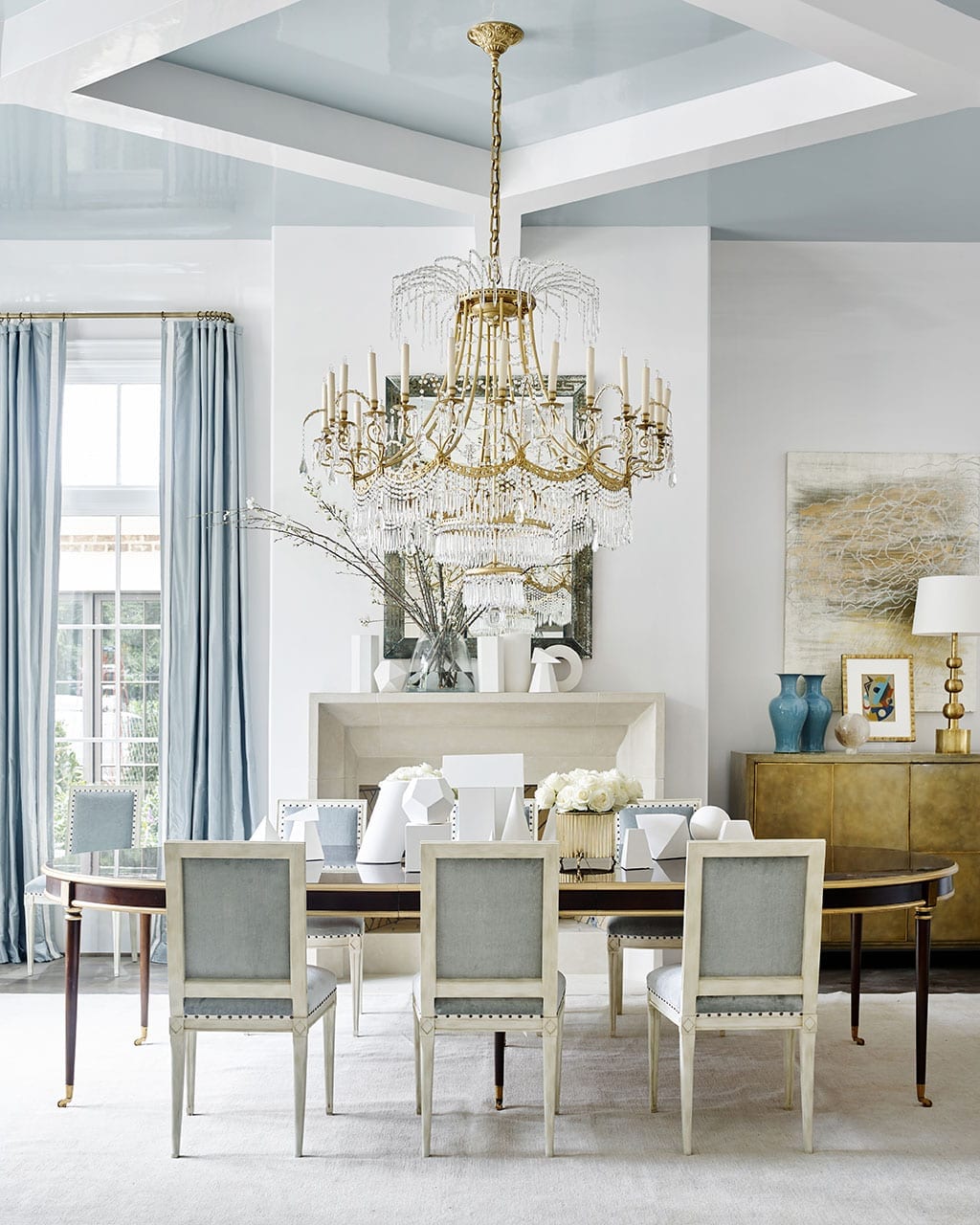
Once upon a time, white walls were looked upon with great disdain. Also known as “rental white,” white walls were thought to be void of personality and sterile. Fast forward to 2016, and white walls are de riguer for homes everywhere and a major staple in every designer’s toolbox. We must admit, we love the look, too.
We got together with celebrated interior designer, Suzanne Kasler, to discuss the all-white look, which just so happens to be her signature style.
Ballard Designs: Why do you love white walls and why should we embrace the look?
Suzanne Kasler: I have always loved white — it’s my favorite color. And what we’ve done in the past few years is bring in an even cleaner white into our spaces, so that when we start layering interiors, it gives rooms a more edited look and feel. Today, more people want a minimal and modern look, and white paint is one of the great ways to accomplish that.
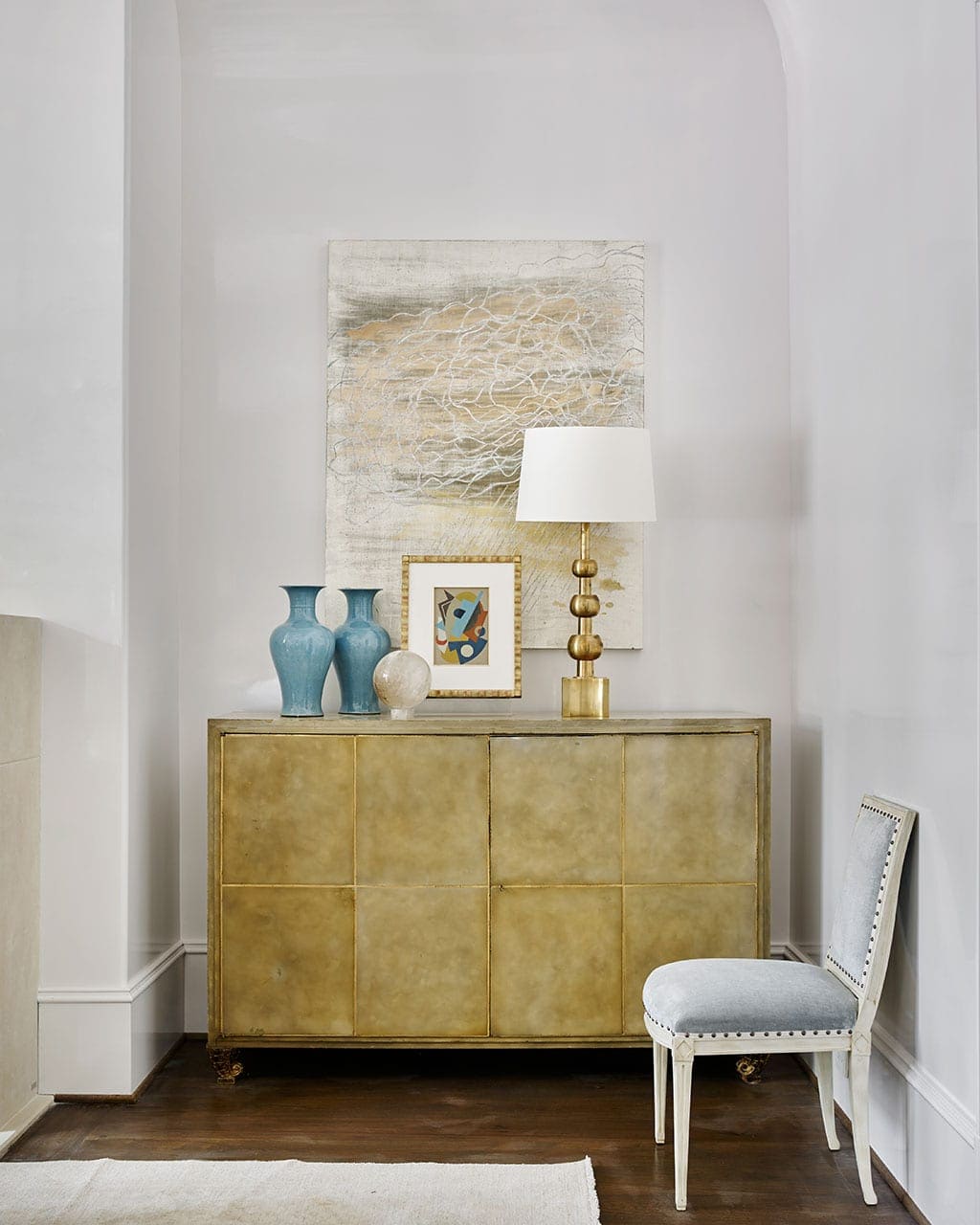
BD: You mentioned minimalism, but we do know that there are still lots of maximalists out there who enjoy a more eclectic look and, well, love their stuff. Can white walls work for the maximalist, too?
SK: If you’re a collector and you paint a room white, one of the things that happens as you start putting your collections back into the room is that they actually show up in a more striking way. You create a beautiful, seamless backdrop with white walls that will make your collections — or whatever else it is you’re layering your room with — really stand out.
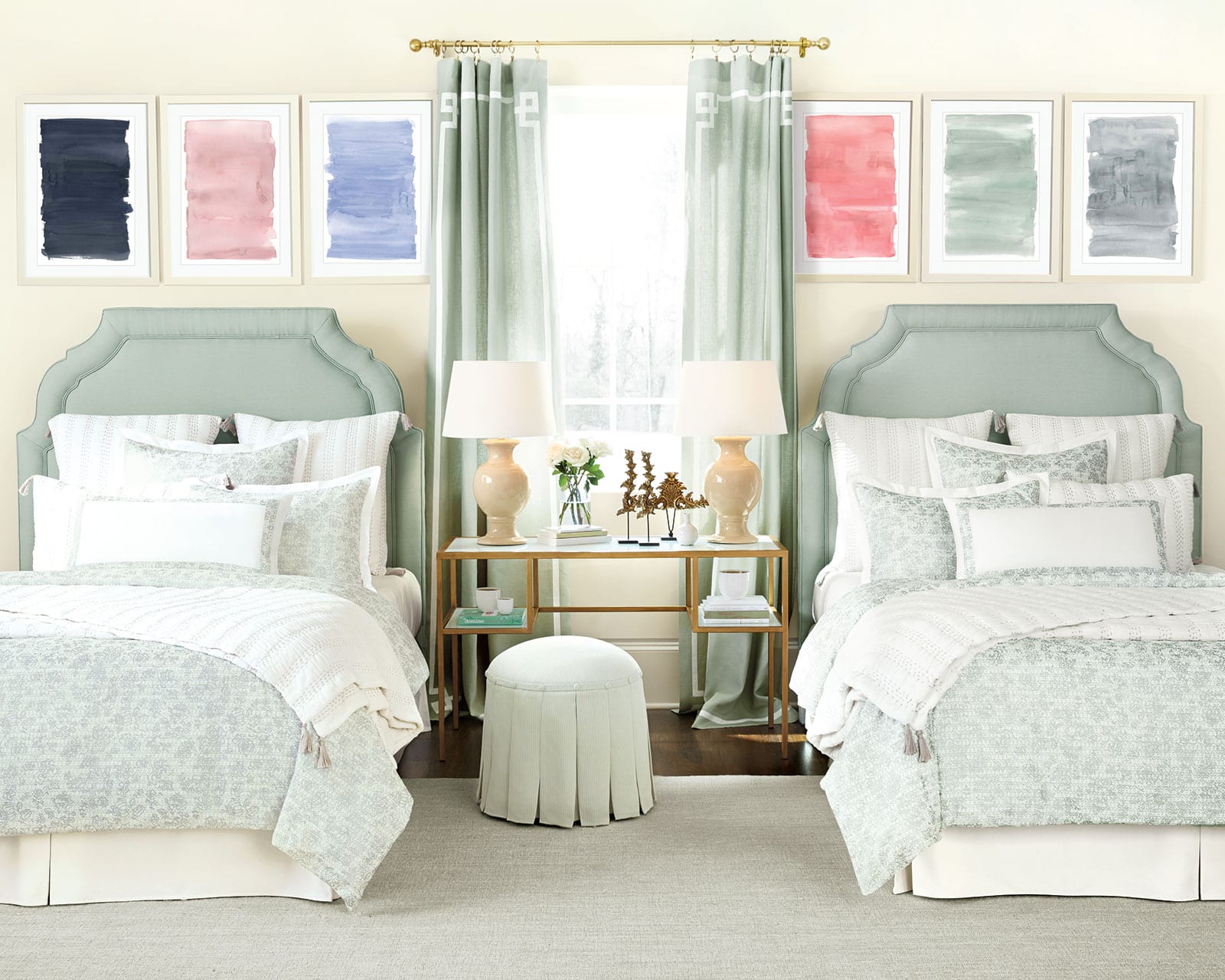
BD: Many people feel intimidated about going all white, because they don’t know how to approach painting the walls, trim and ceiling. What’s your advice?
SK: I love to paint the walls, ceiling and trim the same color. I also use the same finish on the ceiling and walls. I never use flat paint and I absolutely do not ever do a ceiling flat white. It just doesn’t look finished. A lot of times I’ll paint the trim a semi-gloss and maybe the walls and ceiling eggshell. But I have also painted everything the same finish, in a semi-gloss, even. This is what I like to call the architectural envelope — it really opens up the space and makes you see it as a whole. It also allows architectural details to take center stage.
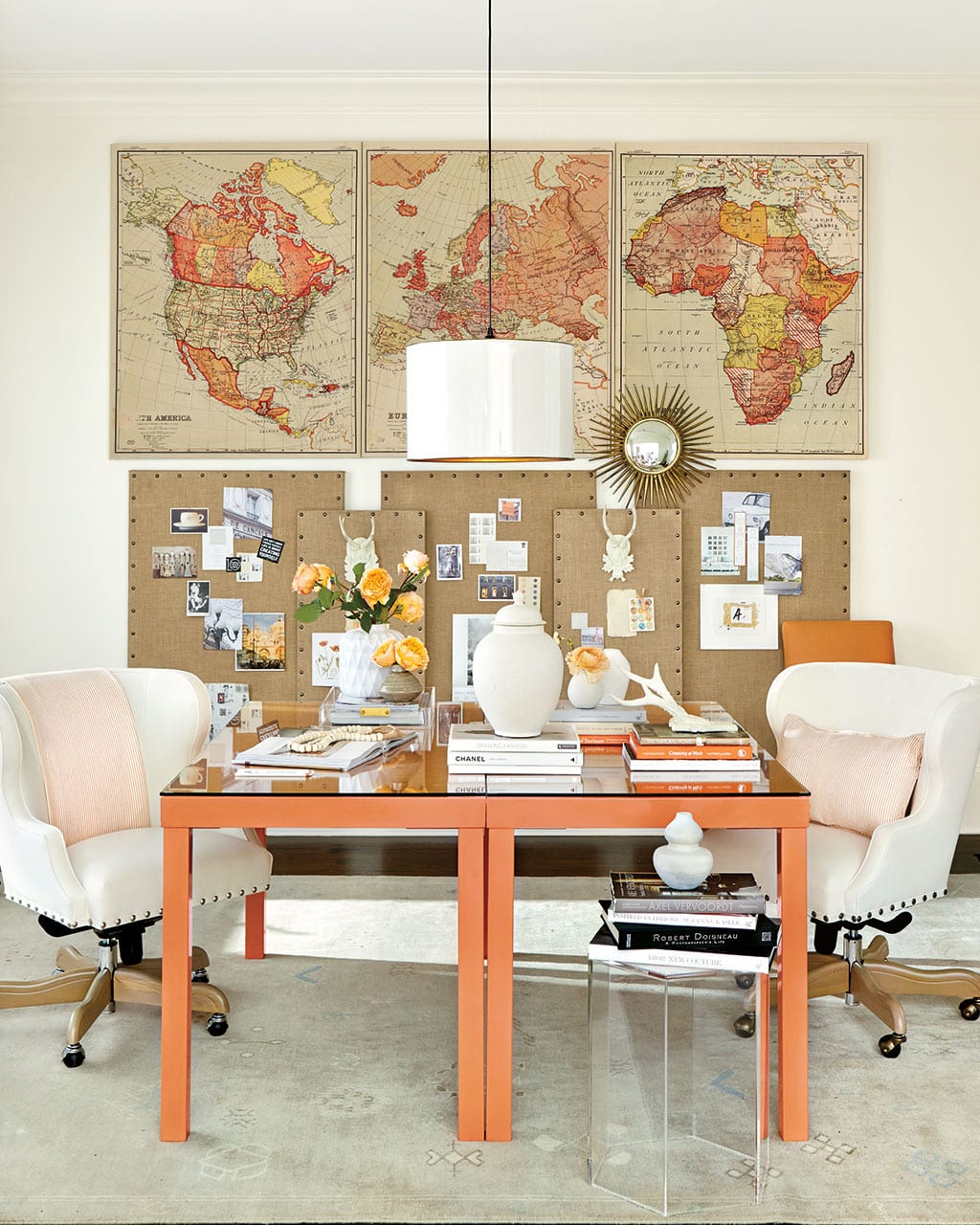
It would be foolish to mistake white for boring. But how do we add personality to an all-white space, so it doesn’t feel flat?
SK: The thing with white walls is you still have to work on the whole design composition. And when you have a soothing white backdrop, you can really play up your accent colors in the room through the use of accessories, pillows, drapery, upholstery and art. Artwork looks so great against a white wall, whether it’s a single piece or a gallery wall. You want to introduce different textures as well — linen curtains, a wool or seagrass rug, the weathered wood of an antique or a mirrored surface. And usually it’s nice if you can repeat or bring the element of the white walls into the details of the room, such as lamp shades or vases.
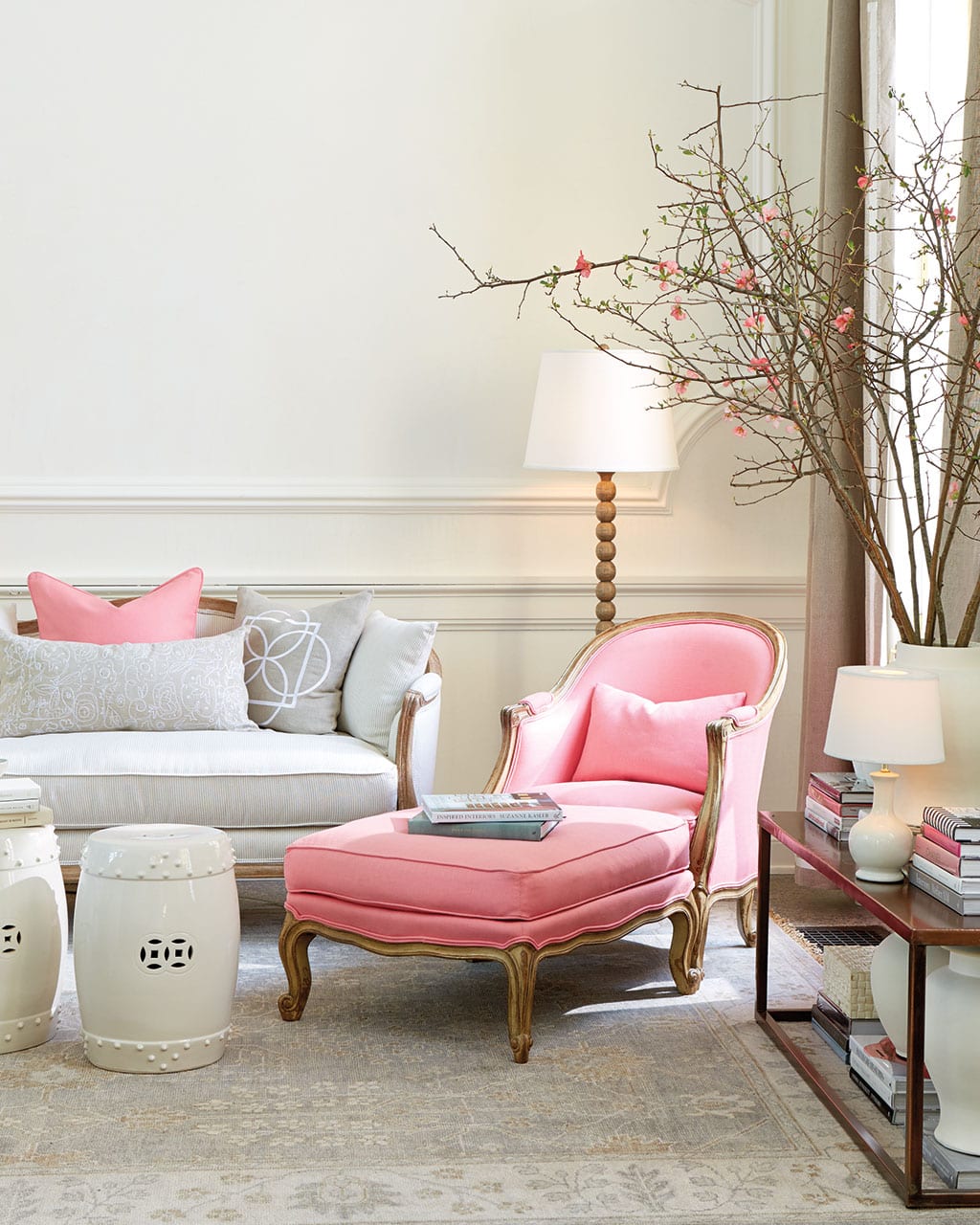
BD: In a whole home or open space floor plan, do you prefer to create a seamless, serene experience with all white walls or do you like to define different areas with color?
SK: I still do like to define areas. Even using white a lot, I still will take a space and have a color somewhere, whether it’s a dining room or a hallway. It’s fun to be bold with color — you just don’t have to do it everywhere. You should balance those bold rooms with moments of calm.
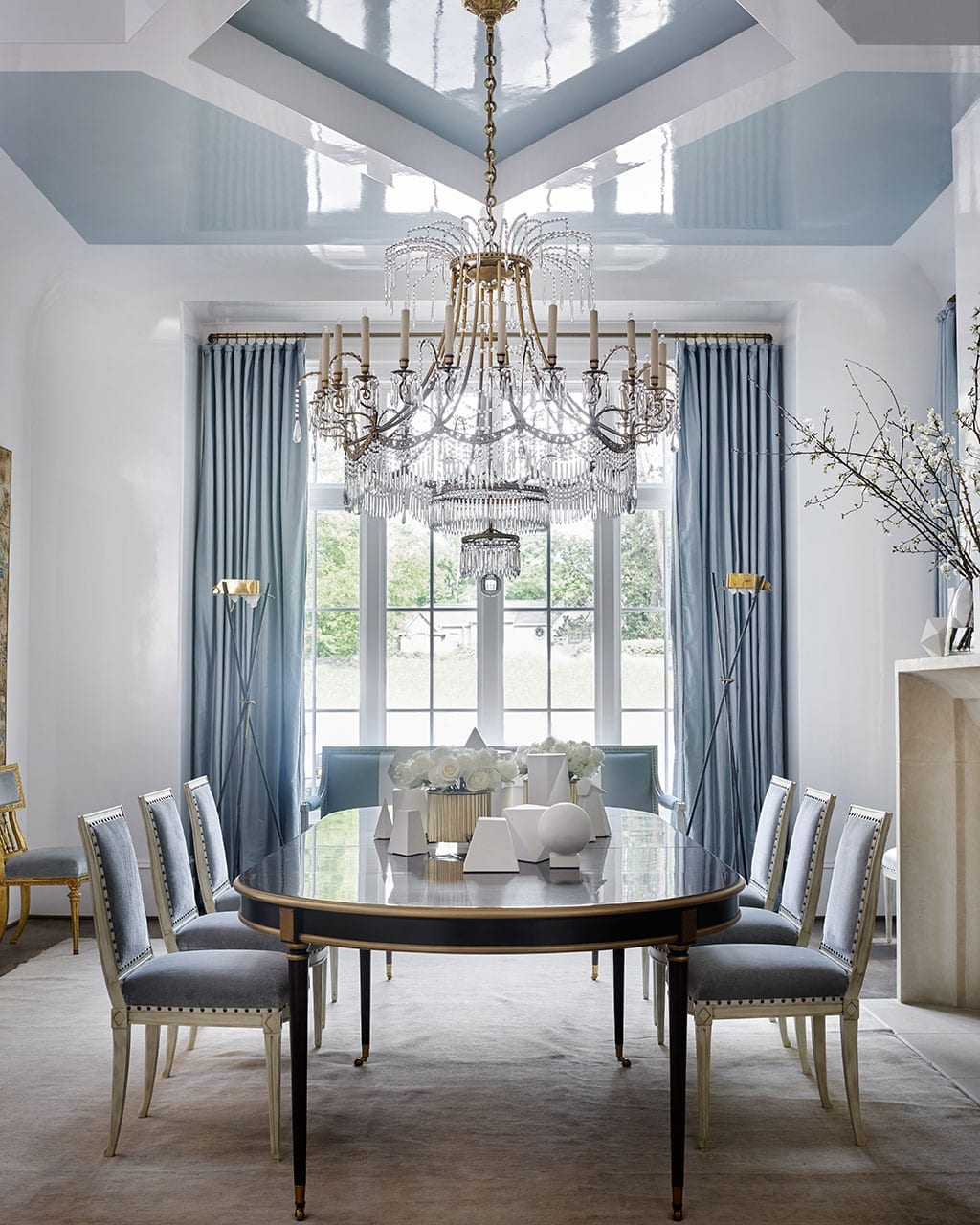
BD: How do you choose the right white? Do you have any favorites?
SK: I prefer warm whites. Cool whites feel very commercial. I have to say that one of my favorite whites that I have used consistently is Benjamin Moore White Dove. It still has a little warmth to it. But I recently did two showhouses where I used different whites. In the Kips Bay Decorator Showhouse, I used Farrow and Ball Pointing, and I thought it was really beautiful. For the Atlanta Homes and Lifestyle Showhouse, I used a high gloss white paint by Fine Paints of Europe (NCS S 2005-B20G) for the walls of the dining room. I had never lacquered a dining room in white before, and it was so chic. The room was very large, and we ended up lacquering the ceiling blue, but all of the woodwork and walls were lacquered white, and we finished the look with this beautiful blue drapery. Again, white really spotlights a color, any color, whether it’s neutral or a color, like this blue, that you might want to put into a space.
Learn more about Suzanne Kasler, or find all of Suzanne Kasler’s entire collection from Ballard Designs here.
Did you like this post and find it helpful? Rate it below and share your thoughts in the comments![/fusion_builder_column][/fusion_builder_row][/fusion_builder_container]


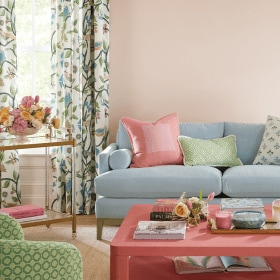

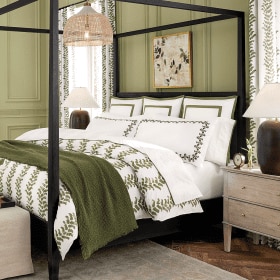
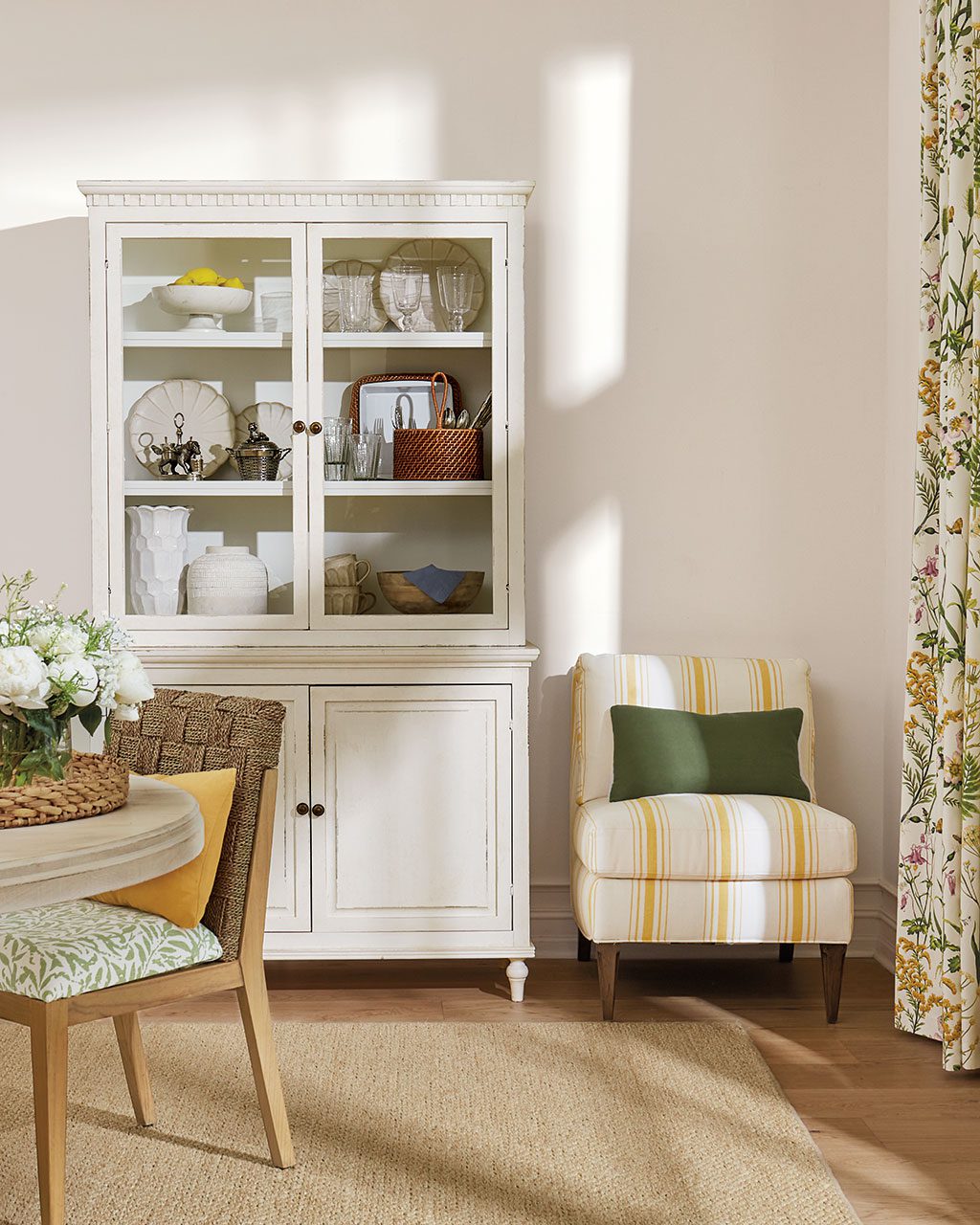
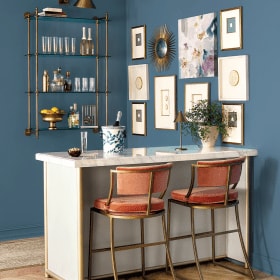
Pascale
What colour of paint was used for the blue ceiling?
Pascale
Hi, what colour if blue is painted on the ceiling?
Dana
Hello, I am in love with the blue drapes, where can I find them?
Caroline McDonald
Dana,
These drapery panels are custom silk drapes fabricated by Suzanne Kasler’s team, but we do sell very similar Dupioni Silk drape in a spa blue that would have a similar look!
Patricia
Hello,
I love the lacquered finish. What product did you use for that beautiful finish & how did you go about painting on the lacquer?
Thank you,
Patricia Griffin
Michelle King
What color is the blue ceiling?
BettyAnn
Thank you so much! Now I know what I’m looking for.
BettyAnn
Darn spell check! I wanted a ‘source’ not a ‘resource’.
Caroline @ How to Decorate
BettyAnn,
That’s a drapery rod with a French Return. We actually sell a French Return Rod but it only comes in bronze right now. Sorry!
BettyAnn
I am very interested in the brass/brass looking curtain rod in the white lacquered dining room. I have seen this type in many magazine photos but I’ve never seen it in a retail shop. Can you give me a resource? Thanks and thanks also for this great post.